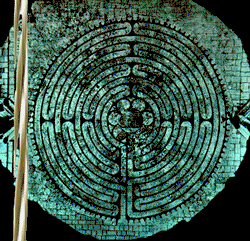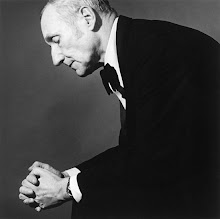 There is a rarer version of this e.p. the cover features a picture of a suicide victim.
There is a rarer version of this e.p. the cover features a picture of a suicide victim.The poor unfortunate had split his head in half with a shotgun blast.
I've never seen it.
Perhaps, it's a myth...
But if you know the work of Steve Albini, and particularly the work of his eighties' band Big Black, the possibility of that deeply unsettling image being used as cover art for this recording is not incomprehensible: it is well believable.
And that says quite a lot about this Chicago based, post-hardcore band.
Touch and Go Records, an independent label also based in Chicago, took-on the band after they fell out with their previous label.
The Headache e.p. (1987) was the only release Touch and Go put out while the band were still together and active (Songs About Fucking came out a little later, after the band had retired due to Santiago Durango's academic commitments).
Albini was not happy with Headache, apparently, and that is maybe why the British edition, put out on Blast First Records, included a free give away of the excellent 7" single 'Heartbeat'.
 For my money, Headache, along with 'Heartbeat', captures the energy and anger that was so indicative of the Big Black sound.
For my money, Headache, along with 'Heartbeat', captures the energy and anger that was so indicative of the Big Black sound.The opener 'My Disco' contains one of the weirdest audio inserts I have ever heard.
Essentially, a group of guys who fire a home-made mortar bomb: Ba-Boom!
Followed by lots of giggling.
Those responsible are credited:
'field recording of mortar shell July 4 1986 [I guess if you're going to fire a mortar in the States, the 4th of July is a pretty good time to do it], roof of the graystone, detroit, by chris gordon for gnec: during the six-man zeus god of thunder [!] tournament'
It's wicked, listen out for it: slap bang in the middle of the track.
The heaviest track on the e.p. is undoubtedly 'Ready Men'.
Misleading in its slow, slightly progy opening, it soon morphs into a metallic, thrashy jam, at about 320 beats per minute; typified by the archetypal Big Black guitar sounds - just what kind of 'strings' did they use?
Coarse and abrasive, as metallic and mechanical as possible (the band never did have a drummer, preferring the beats generated by Roland; that's Roland the drum machine), 'Pete, King of all Detectives' is misanthropic, misogynistic and offensive, but one-hell-of-a-noise!
It is also funny - I'm not sure why, but Albini screaming 'I'm Pete: Yeah Pete' at the top of his voice just amuses me.
And as for that wonderfully thugish bass-line...
The almost Burroughs-like delivered preamble sets the song up perfectly:
'I'm tough as dirt
I'm mean as blood
Where I blow out come spiders
Where I step a weed dies
No smokes with diapers for Pete, King of all detectives
Fall down on your knees
Fall down and worship King Dick'
Big Black were ever so good at covers.
Their most recognised song is without doubt their version of Kraftwerk's 'The Model'; but their take on Wire's 'Heartbeat' is even better.
Adapting Colin Newman's mechanical, vacant delivery, Albini transformed the track into a bombastic scream: crystallizing perfectly the fear associated with body-paranoia and mortality.
'Things To Do' is right mean and nasty, with the refrain 'Kill the Dog' aiding its spiteful malice.
The final track, 'I Can't Believe', all one minute of it, is one of my favourite Big Black tunes.
Just turn it up as loud as you dare, and see if you don't start bouncing yourself off the walls.
Go on! Go for it!
According to Albini, the track originally had lyrics: 'something about the American political system, but Sant hated them. Thus are all great instrumentals born'.
And a great instrumental it is.
Albini, as a musician, lives on through his current band Shellac (I will be posting a taste of their excellent catalogue in the near future), although for many he may well be known more as a producer (Nirvana, Polly Harvey, Pixies, et al.) than he is a musician.
Big Black created a sound that has been much emulated over the years; but very few did it as well, and very, very few did it better.
I believe it was Albini's skill in the studio that allowed the band to shine: to stand out from so many of their contemporaries and later imitators.
An awful lot of noise and hardcore music can come across as lifeless and stilted when recorded in a studio; recordings totally unable to capture the energy associated with live performance.
Big Black did not suffer from this; their recorded music was always dynamic, vibrant, and brimming with vital energy; so much so that of all the hardcore style bands, Big Black sound as good, if not better, on record as they did live.
Big Black - Headache e.p.
Tracks:
My Disco
Grinder
Ready Men
Pete, King of all Detectives
Big Black - Heartbeat 7"
Tracks:
Heartbeat
Things To Do
I Can't Believe
Both these are ripped from vinyl @256kbs
Get them both here





























